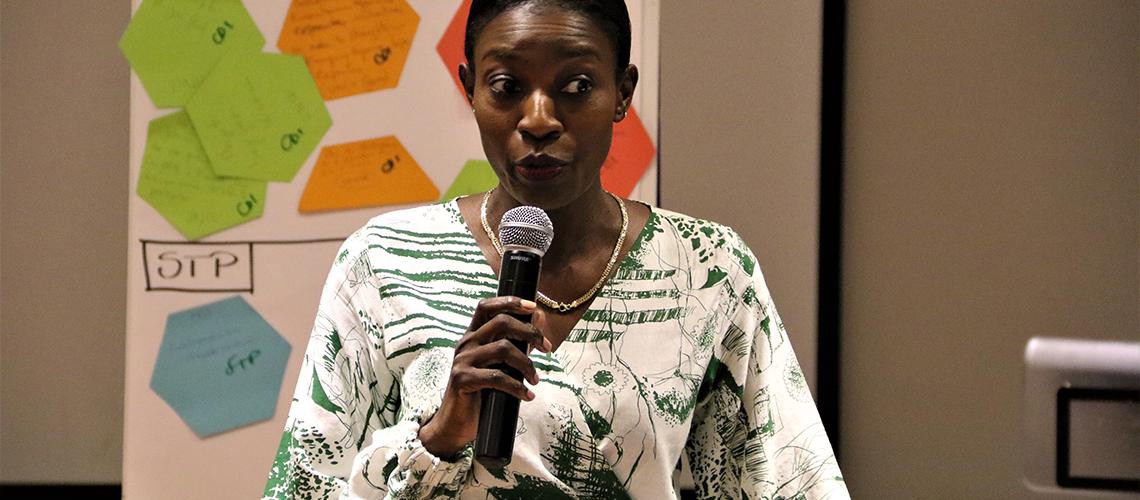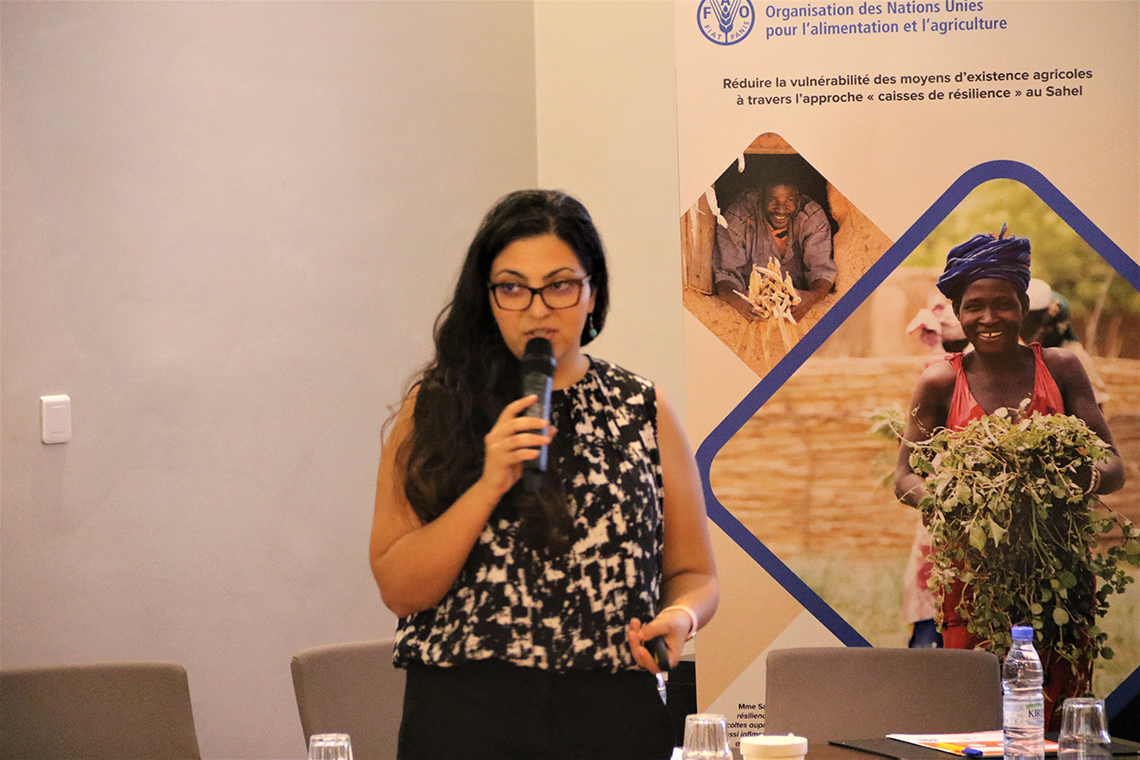
The CADRI Partnership has embarked on a regionalization journey with a primary goal in mind: improving the capacity of the partnership to provide timely and quality tailor-made support to countries. Having dedicated regional capacities allows CADRI to not only become more agile, but also to be able to better contextualize the offer of services to reduce disaster and climate change risks. Over the past year, this process has led CADRI to establish dedicated regional facilitator positions in the Western and Central Africa, Eastern and Southern Africa, Latin America and the Caribbean and Europe and the Commonwealth Independent States regions. In each of the regions, the CADRI Partnership is hosted by one or two UN partners.
In Dakar, covering the Western and Central Africa regions, the CADRI Partnership is hosted by the International Organization for Migration (IOM) and the Food and Agriculture Organization (FAO)’s Regional Bureaux. Their role as co-hosts is to advocate for the work done by the partnership, provide programmatic and contextual advice and, overall, act as the main CADRI representatives to the governments and partners in the region.
We interviewed Coumba Sow, FAO’s Regional Resilience Coordinator; Philippe Branchat, IOM’s Senior Regional Emergency & Post-Crisis Specialist and Marise Habib, IOM’s Regional Emergency & Post-Crisis Officer, to discuss the role of CADRI in the region, the mutual benefits of hosting the partnership and how they see it evolving in the current context.
What added value can CADRI bring to the Western and Central Africa region?
Coumba Sow: The Sahel region is often hit by multiple hazards such as conflicts, climate change effects, locust invasions and livestock diseases. The current COVID-19 pandemic is a new challenge that adds to these recurrent shocks. These hazards have led to many disasters with negative impacts on the socio-economic development of the region: insecurity, chronic hunger, low economic growth, poverty, etc. In this context, CADRI can help governments and their partners to better evaluate major disaster risks, and support national and subregional capacities to anticipate and better manage these risks.
Philippe Branchat: CADRI provides a mechanism to promote cooperation within the UN system in the region, by bringing together UN agencies and programmes on disaster risk reduction and climate change adaptation in a coordinated manner. In the past, these activities were done in isolation. Thanks to CADRI’s presence at regional level, we have the opportunity to further promote joint disaster risk reduction programming, identifying synergies and maximizing resources. The UN can also ensure a more reactive approach to country requests for support. For example, since CADRI’s presence was established in the region, a new request from the government of Senegal has been generated. This demonstrates how regionalization contributes to the sensitization of countries in the region to the possibility of benefitting from CADRI’s offer of services.

Marise Habib: CADRI brings together the agencies as ONE UN and acts as a single port of entry for governments when it comes to disaster risk reduction and climate change adaptation matters.
What can IOM and FAO, as host agencies, contribute to the work of CADRI in the region?
Marise Habib: The added value that IOM brings to CADRI is rooted in the Organization’s operational presence in most countries in the region as well as a thorough understanding of contextual realities and community priorities and concerns. In its representation of the CADRI Partnership with regional and local actors, IOM can therefore offer its existing relationships with national governments and its knowledge of local communities and their realities. This ensures that, as a host agency, IOM is able to engage in concrete discussions with national actors and regional partners on questions of disaster risk reduction that bridge the necessary policy and operational levels sought by the CADRI partnership.
Philippe Branchat: CADRI builds on IOM’s past engagement with governments in West and Central Africa on disaster risk reduction. IOM has invested in building country capacities on information management in times of crisis, camp coordination and camp management through the provision of multiple trainings. Through these, IOM has established relationships with civil protection departments in the region that can now be leveraged for the CADRI Partnership. An example is the work done in Sierra Leone where IOM trained the Directorate of civil protection in Freetown a few months before the mudslide in 2017. This included a crash course on data collection and enabled IOM to support the government in applying its preparedness on Information management / Camp Coordination and Camp Management to set up the first two camps after the disaster took place.
Coumba Sow: FAO provides support to CADRI in the region by facilitating its activities through its wide, established network of partners. FAO also invests in building and strengthening partnerships with other CADRI partners in the region and raises awareness on the importance of this initiative.
What do you see as some of the main challenges related to COVID-19 for the region?
Coumba Sow: One of the main challenges will be food availability, particularly for those countries dependent on food imports. Border closures restrict trade and will have an impact on the ability of farmers to prepare for the main agricultural season, due to the limited availability of fertilizers and seeds, but also the closure of stores and markets to sell their products. If COVID-19 continues to spread, the pandemic will translate into increased threats for the most vulnerable groups, including displacement, reduced access to basic social services, higher food prices, limited food availability, among others.
Marise Habib: COVID-19 response plans, and prevention and response efforts in the region, in large part do not absorb migrants and IDP communities in their national responses and policies, so efforts are needed to counterbalance the disproportionate impact of COVID-19 restrictions on vulnerable communities, including migrants and IDPs, and reduce the risks on these communities.
How do you think CADRI can contribute to the work being done in the region in response to COVID-19?
Philippe Branchat: CADRI could contribute to the work being done in the COVID-19 response by continuing to expand its scope of work to include preparedness. The experience of the Togo diagnosis mission was interesting in this regard as CADRI’s scope was extended towards preparedness and the mission was able to inform national actors and CADRI partners of critical gaps necessary on this front for effective DRR. CADRI could also play a role in facilitating lessons learned and capitalizing on experiences that will feed into contingency planning once the crisis is over.
Coumba Sow: More than ever countries need to be prepared for disasters. This crisis is a lesson and should put the mandate of CADRI at the heart of countries strategies. As most of West Africa is already affected by other complex crises, it is important to put emphasis on collecting information and carrying out analyses to better understand the impact of COVID-19 on the livelihoods of vulnerable populations and on various sectors covered by CADRI. An opportunity for CADRI would be to assist in the implementation of country specific COVID-19 response plans and helping countries to evaluate national response to COVID-19.
